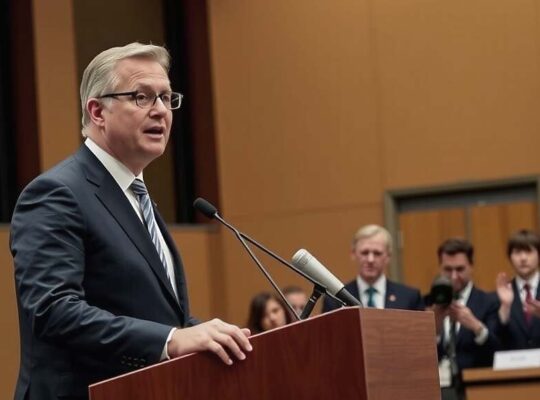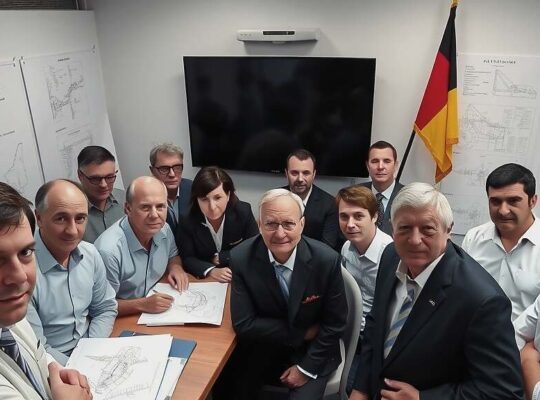The northern state of Schleswig-Holstein’s Minister-President Daniel Günther has launched a sharp critique of Germany’s performance in the electric mobility sector, raising concerns about the nation’s declining technological leadership and questioning the coherence of current energy policy. Günther, of the Christian Democratic Union (CDU), expressed profound regret that Germany has “missed the opportunity” to spearhead the electric vehicle revolution, a situation he believes has significantly hampered the international competitiveness of its renowned automotive industry.
Günther’s criticism extends beyond mere lamentation. He directly accused established German automakers of a lack of ambition, specifically regarding battery production, suggesting they have prioritized market share struggles over long-term strategic vision within the burgeoning electric market. The recent announcement that US firm Lyten plans to establish a battery factory in Heide, Schleswig-Holstein, was met with thinly veiled embarrassment. Günther pointedly remarked that the need to rely on an American company to establish battery production in a prime German location reflects poorly on the country’s industrial capabilities.
The comments come amidst internal debate within the CDU regarding the feasibility of maintaining Germany’s ambitious climate targets for 2045. Günther flatly rejected suggestions of a retreat, emphasizing Germany’s historical strength has always been derived from technological leadership and subsequent export success. “We must not curb our ambition now” he stated, warning against any weakening of environmental goals.
Günther also challenged the policy direction proposed by Federal Minister for Economic Affairs, Katarina Reiche (also CDU), who intends to synchronize the expansion of renewable energy sources with the development of the nation’s power grid. He argued that this represents an incorrect prioritization, asserting that the focus should be on rapidly expanding the grid infrastructure rather than limiting clean energy development. “It’s frustrating that the power grids in Germany haven’t been adequately developed” Günther acknowledged, “but the solution is to accelerate their expansion, not to restrain renewable energy growth”. He highlighted the feasibility of grid improvements within Schleswig-Holstein, emphasizing the importance of maintaining the correct policy priorities to ensure a successful and sustainable energy transition.
The Minister-President’s commentary underscores escalating anxieties surrounding Germany’s position within the global shift towards electric mobility and energy transition, potentially signalling a period of intense political debate and policy recalibration.












